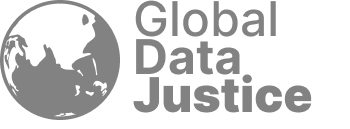About the project
Places and populations that were previously digitally invisible are now part of a ‘data revolution’ that is being hailed as a transformative tool for human and economic development. Yet this unprecedented expansion of the power to digitally monitor, sort, and intervene is not well connected to the idea of social justice, nor is there a clear concept of how broader access to the benefits of data technologies can be achieved without amplifying misrepresentation, discrimination, and power asymmetries.
We therefore need a new framework for data justice integrating data privacy, non-discrimination, and non-use of data technologies into the same framework as positive freedoms such as representation and access to data. This project will research the lived experience of data technologies in high- and low-income countries worldwide, seeking to understand people’s basic needs with regard to these technologies. We will also seek the perspectives of civil society organisations, technology companies, and policymakers.

